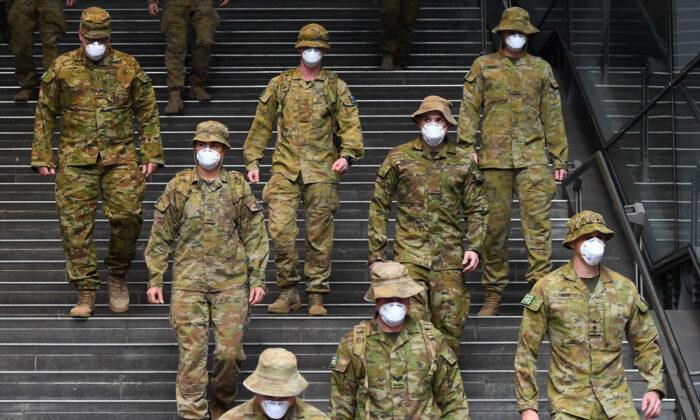Australia and its neighbouring countries are seeking to establish a “Pacific Islands Regiment” to strengthen defence ties and protect regional sovereignty, as the Pacific area’s security continues to come under the growing China threat.
It is time for the Australian government to step up its military relationships with Pacific Island states by “innovative and practical” means, the MPs suggested, such as increasing integration on combined training and operations. Members of the regiment and their families could also be granted Australian residency and eventual citizenship.
However, the Foreign Affairs, Defence and Trade subcommittee acknowledged the associated challenges, including consideration of the status of forces agreements, pay and conditions, and veterans affairs.
The push for closer Australian-Pacific Islands defence ties comes as China is tightening its grip in the Pacific region by trade, debt trap and infrastructure investment under the Belt and Road Initiative (BRI).

“Australia has been anxious about its proximity to the Pacific Islands, the region’s vulnerability to penetration by potentially hostile powers, and its distance from its major security allies (first the United Kingdom, later the United States),” the report said.
“In parts of the Indo–Pacific, including in Southeast Asia, China’s power and influence are growing to match, and in some cases exceed, that of the United States.”
In reality, the BRI initiatives have turned six Pacific governments—Cook Islands, Fiji, Papua New Guinea, Samoa, Tonga, and Vanuatu—into Beijing’s debtors.
Concetta Fierravanti-Wells, Australia’s Minister for International Development and the South Pacific, in 2018 criticised China for pouring money into “useless buildings” that the island countries couldn’t pay for. China replied by calling her comment “full of prejudice and bias.”

Keni Lesa/AFP via Getty Images
Concerns over security in the Asian-Pacific region also grew in February 2021 after a Chinese company put forward a multi-billion-dollar plan to build an industrial city on an impoverished island of Papua New Guinea, close to Australia’s northern border. A similar move was seen in Vanuatu in 2018, where the Chinese government built a wharf for commercial cruise ships but with the capacity to service military naval vessels.
“China is acutely aware that the fledgeling democracies of the Pacific are prone to shortsightedness—and in some cases, outright corruption—and, as a result, are at risk of manipulation that goes against their best interests.”
Taiwan Foreign Affairs Minister Joseph Wu has warned that Beijing is planning to militarize the South Pacific and transform it into “another South China Sea.”
“We have seen reports that China is interested in reopening this radar station in Kiribati and building a naval base in the Western Province of Solomon Islands,” he said during the 2019 Pacific Islands Dialogue.
The director of the Australian Strategic Policy Institute’s defence program, Michael Shoebridge, said the Pacific Islands regiment would enhance the Pacific nations’ cohesion and protect them from Beijing’s takeover.
Built on the Morrison government’s Pacific Step-up, the inquiry looks to boost ties among Pacific Island countries in protection and surveillance, humanitarian assistance and disaster relief, fisheries management, intelligence collection and sharing, environmental issues and the Covid-19 pandemic.
“The Pacific…is our home, so it is understandable that the Australian agencies of the state are deeply invested in engaging and working closely with our Pacific partners. That’s reflected in the nature of Defence programs in the regions,” the report stated.




